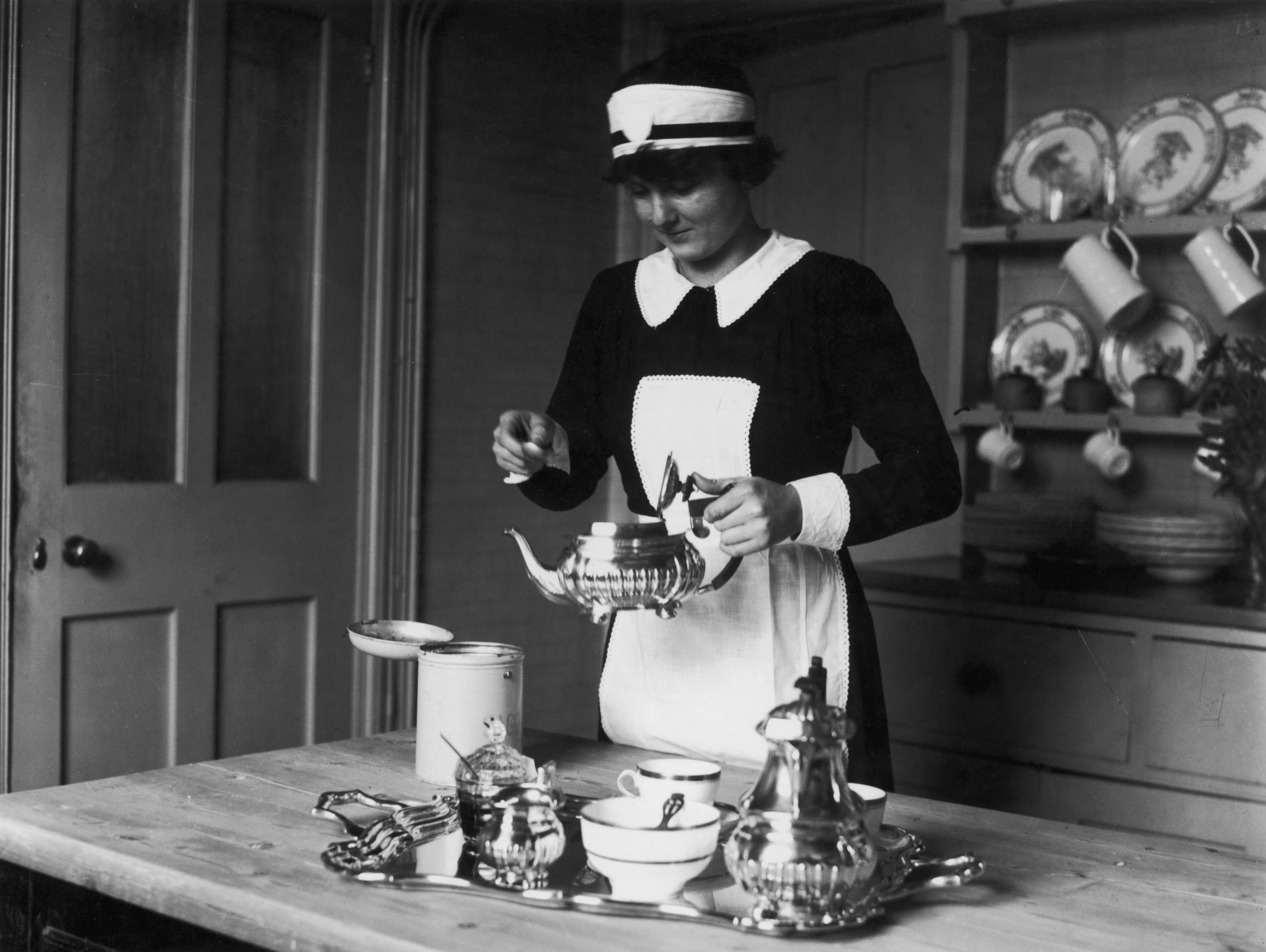
If you want to be happy, there is apparently a trick: offload the shitwork onto somebody else. Hire cleaner. Get your groceries delivered. Have someone else launder your sheets. These are the findings published by the Proceedings of the National Academy of Sciences, but it’s also been the foundation of our economy since before we had economics. Who does the offloading? Men. Who does the shitwork? Women.
Over the last 40 years, female employment has risen to almost match the male rate, but inside the home, labour sticks stubbornly to old patterns: men self-report doing eight hours of housework a week, while women slog away for 13. When it comes to caring for family members, the difference is even more stark: men do ten hours, and women 23.
For your average heterosexual couple with kids, that means women spend 18 extra hours every week going to the shops, doing the laundry, laying out uniform, doing the school run, loading dishwashers, organising doctors’ appointments, going to baby groups, picking things up, cooking meals, applying for tax credits, checking in on elderly parents, scrubbing pots, washing floors, combing out nits, dusting, folding laundry, etcetera etcetera et-tedious-cetera.
Split down the middle, that’s nine hours of unpaid work that men just sit back and let women take on. It’s not that men don’t need to eat, or that they don’t feel the cold cringe of horror when bare foot meets dropped food on a sticky kitchen floor. As Katrine Marçal pointed out in Who Cooked Adam Smith’s Dinner?, men’s participation in the labour market has always relied on a woman in the background to service his needs. As far as the majority of men are concerned, domestic work is Someone Else’s Problem.
And though one of the study authors expressed surprise at how few people spend their money on time-saving services given the substantial effect on happiness, it surely isn’t that mysterious. The male half of the population has the option to recruit a wife or girlfriend who’ll do all this for free, while the female half faces harsh judgement for bringing cover in. Got a cleaner? Shouldn’t you be doing it yourself rather than outsourcing it to another woman? The fact that men have even more definitively shrugged off the housework gets little notice. Dirt apparently belongs to girls.
From infancy up, chores are coded pink. Looking on the Toys “R” Us website, I see you can buy a Disney Princess My First Kitchen (fuchsia, of course), which is one in the eye for royal privilege. Suck it up, Snow White: you don’t get out of the housekeeping just because your prince has come. Shop the blue aisle and you’ll find the Just Like Home Workshop Deluxe Carry Case Workbench – and this, precisely, is the difference between masculine and feminine work. Masculine work is productive: it makes something, and that something is valuable. Feminine work is reproductive: a cleaned toilet doesn’t stay clean, the used plates stack up in the sink.
The worst part of this con is that women are presumed to take on the shitwork because we want to. Because our natures dictate that there is a satisfaction in wiping an arse with a woman’s hand that men could never feel and money could never match. That fiction is used to justify not only women picking up the slack at home, but also employers paying less for what is seen as traditional “women’s work” – the caring, cleaning roles.
It took a six-year legal battle to secure compensation for the women Birmingham council underpaid for care work over decades. “Don’t get me wrong, the men do work hard, but we did work hard,” said one of the women who brought the action. “And I couldn’t see a lot of them doing what we do. Would they empty a commode, wash somebody down covered in mess, go into a house full of maggots and clean it up? But I’ll tell you what, I would have gone and done a dustman’s job for the day.”
If women are paid less, they’re more financially dependent on the men they live with. If you’re financially dependent, you can’t walk out over your unfair housework burden. No wonder the settlement of shitwork has been so hard to budge. The dream, of course, is that one day men will sack up and start to look after themselves and their own children. Till then, of course women should buy happiness if they can. There’s no guilt in hiring a cleaner – housework is work, so why shouldn’t someone get paid for it? One proviso: every week, spend just a little of the time you’ve purchased plotting how you’ll overthrow patriarchy for good.






